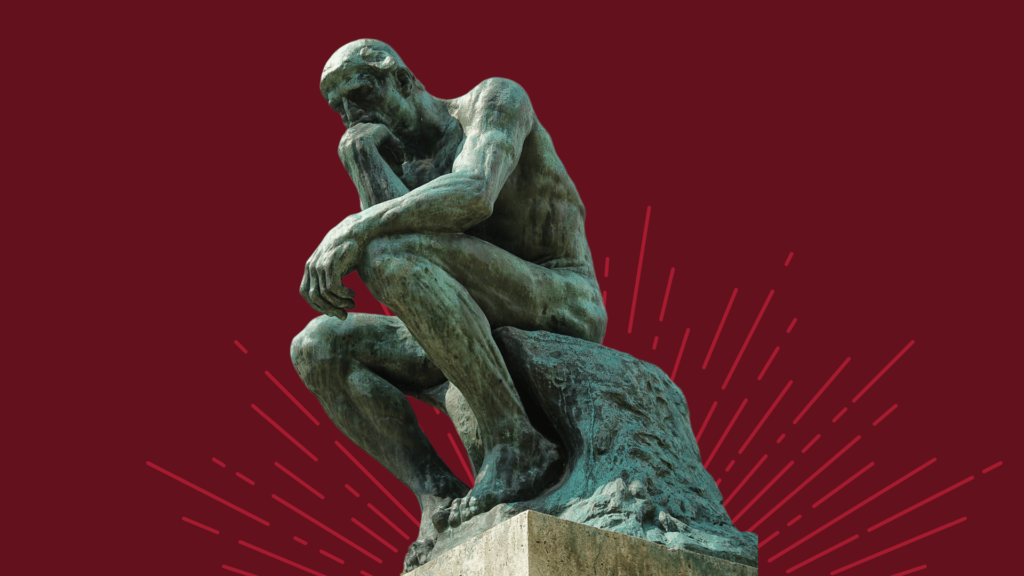‘I never once thought that I didn’t want to believe in something’
Dara Omoloja ’26
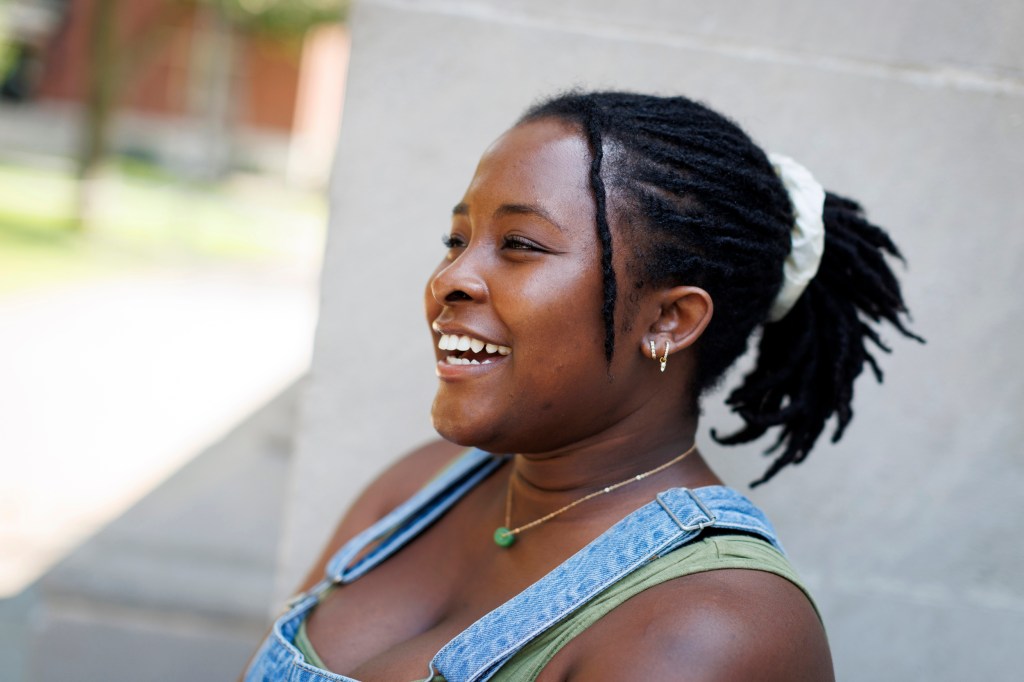
Dara Omoloja
Stephanie Mitchell/Harvard Staff Photographer
I’ve had a lot of conversations with my peers at dinner and in class about religion. I grew up very Christian, but when I came to Harvard, I started questioning a lot of the beliefs I grew up with: Maybe what I believed to be true wasn’t exactly what I thought it was.
When I look at Christianity now, as much as I see a message of love, I also see a lot of issues with the way that it’s practiced. I wanted to become more open, learning more about my friends’ religions and also getting involved with multiple different populations. There are so many people with so many different mindsets and beliefs here and so I felt like it was the best place to explore.
At one point, I was bordering on being agnostic or spiritual, but one thing that stuck with me is the fact that I never once thought that I didn’t want to believe in something. Even after I spoke to so many people, I find importance in religion, not just because it’s something you should follow, but because it’s just nice to have faith in something even if it might not be real. I think it’s an important comfort for some people that they might not be able to find it anywhere else.
After this class, I washed my hands of germophobia
Ricardo Fernandes Garcia ’27
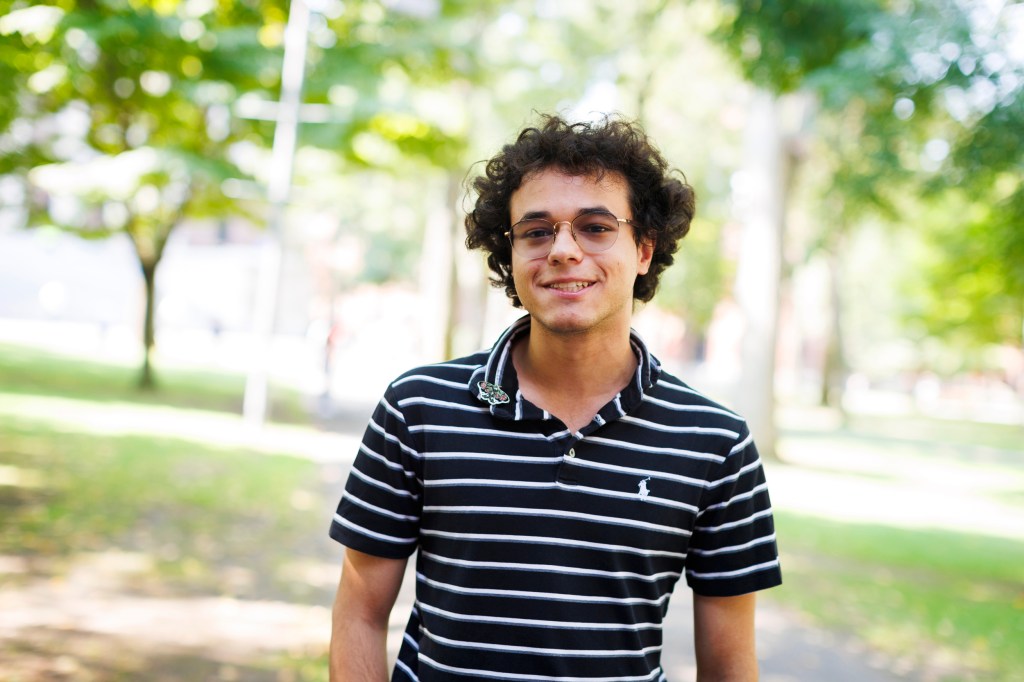
Ricardo Fernandes Garcia.
Stephanie Mitchell/Harvard Staff Photographer
I took a class called “Microbial Symbioses,” and I’m not a STEM person but that class really expanded my mind. We saw the different ways we interact with bacteria or microorganisms, and the way society tends to see microbes as enemies. We tend to be germophobic and sanitized. We tend to see them as related to plague and illness. But this class showed that we live because of microbes. Everything that is living interacts with microbiology. Even in coral reefs, the microbes allow the coral to survive.
One of the chapters we read talked about how hospitals usually keep their windows shut. But because of the way microbes flow in the air, it is better to have open windows in hospitals. There have been studies that show having open windows in hospitals allows patients to recover faster. We tend to see health as correlated with sanitation. We don’t want to get infected. But this class was reframing it as having people infected with the correct microbes, microbes that are beneficial, as opposed to not being infected. It’s an interesting way of reshaping medicine.
A dining hall chat led me on a listening and tasting tour of 4 countries
Joseph Foo ’26

Joseph Foo.
Photo by Jodi Hilton
Last summer I was going to do research on noodles. It was the most bizarre and random topic I could think of. I was really confused when I was writing my proposal. There were so many theories, so many methodologies, so many different ways of doing it. There was so much information out there. HOLLIS was swarming me with texts.
So I was going to Friday dinner at Pfoho, and I happened to meet a Dining Services worker whom I see every week. It just so happened that day they were serving a cuisine that was native to her. And she was talking to me about the food, where it came from, and how happy she was to see her own local traditions being represented. She gave me a whole backstory about her upbringing, her recipes, her life experiences. I was amazed by her passion and the joy she had in talking about food. And then that got me thinking: “What if I throw away all that theory for a second, and I just steep myself in good old ethnography? Forget the theory, forget all these big academic ideas. Listen to the stories, learn from them, collect them, make sense of them later.” That’s what I did. So for the past three months, I’ve been doing noodle research in Japan, Mongolia, Korea, and Greece. I went through a typhoon, I went to the mountains, got lost on a bus, I went through all sorts of different things. It was amazing, an absolute blast. And it all started with me getting answers to a question I didn’t know I had.
You expect the best conversations to be in class, to be with your professors, to be with your teaching fellows, to be with your classmates. And that’s true, you know. They give you wonderful conversations. But sometimes, it’s the places you least expect that you get the most out of. To that end, I always say that conversation is about two things: It’s about trust, and it’s about humility. You need to be humble enough to learn from anyone and everyone you meet. Also, from that trust, from that bond between people that gets you talking not just from the mind but from the heart. Get them to share what really means something to them. That’s something that really changed my life this summer.
I was an introvert until I had to live with 4 strangers
Juhee Kim ’28
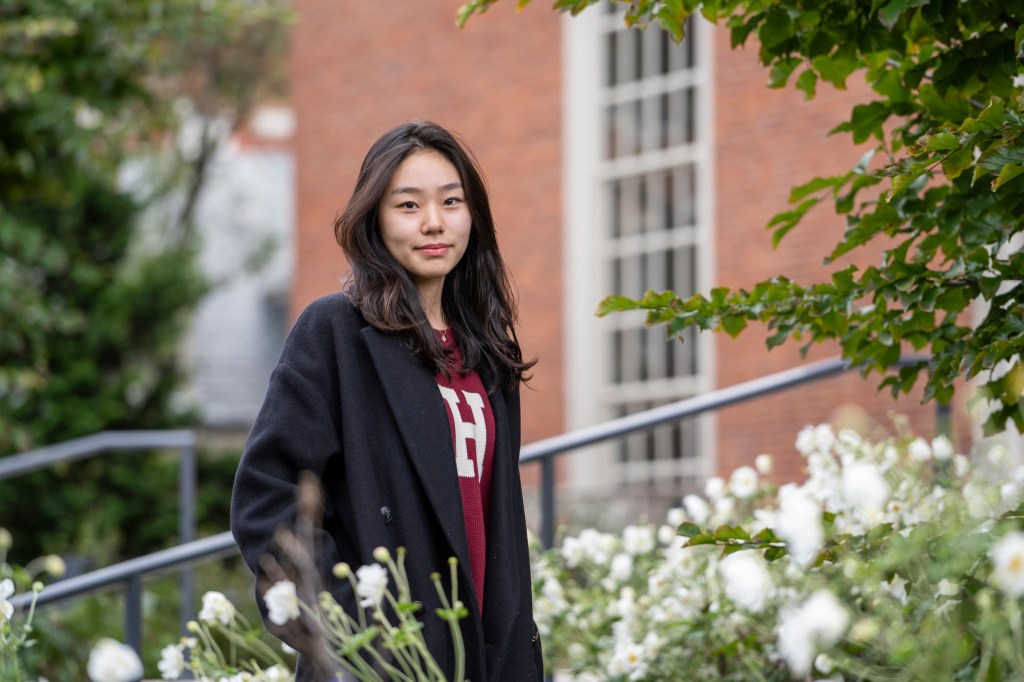
Juhee Kim.
Photo by Jodi Hilton
During the summer, when we first got our rooming assignments, I found I was going to be in a room with four different girls. This is a hallway situation, so there’s one shared bathroom. We had three singles and one double. All of us obviously wanted a single, including myself. And because I’m very introverted, I didn’t know how to say it to them. So I sucked it up. Me and this other girl were like, “You know what? Let’s stop fighting. We’ll be in the double together.” When I got here, I wasn’t in the best mood because of this entire situation. But I ended up loving all of them. I love the hallway situation. We actually opened our suite doors so that we would have one long suite together. And I’m so close with all of them. I don’t know where my introvertedness went to — it’s definitely still there — but I’m definitely so much more extroverted than I was in high school. I love my roommate, and I really like everybody in the hallway. I don’t know how I got here. I’m so extroverted now, and I’m so social.
Even if you’re in a room of four girls you’ve never met in your entire life — one is international, we’re from everywhere all over the country — even if it’s completely random, there’s so many different ways to get along and connect with them, even if you’re so introverted like I was in high school. I’ve loved my experience at Harvard so far, and I’m sure I’ll enjoy it for my next four years. And I’m actually planning on blocking with them. I’m not really the type to say my thoughts very much. Even if I have opinions, I just keep it to myself so that there’s no conflicts. But my roommates are very straightforward. They will come to me and be like, “No. Speak your truths. Say your things. Don’t keep it to yourself.” That made me a lot more open with all of them, and that definitely improved our relationship.
When I was growing up, the idea of studying gender and race seemed like a waste of time
Michelle Chang ’26
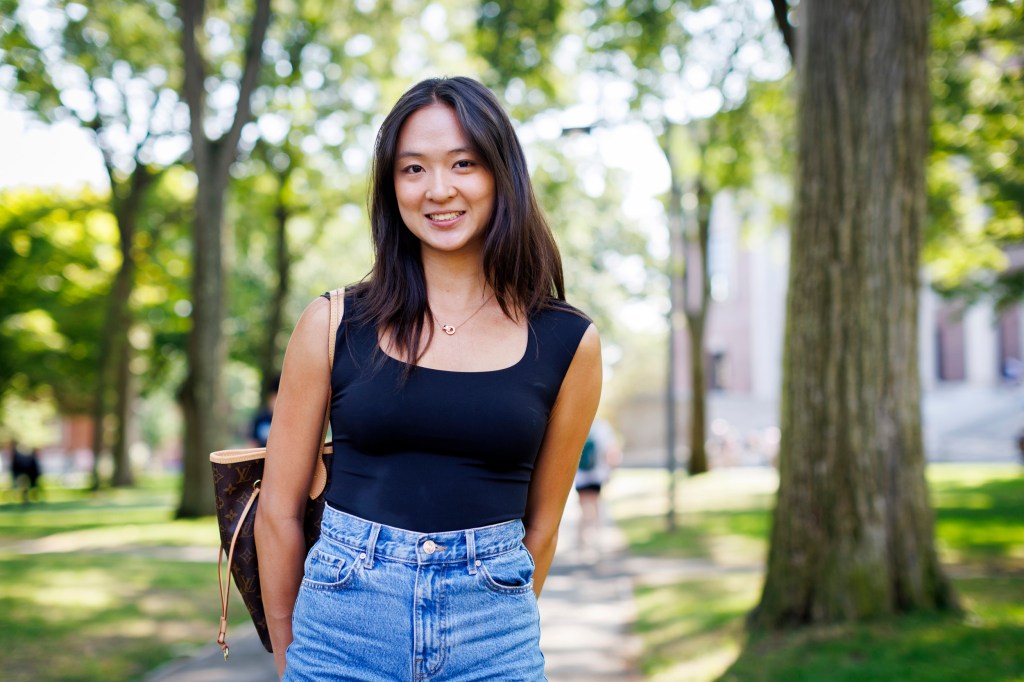
Michelle Chang.
Stephanie Mitchell/Harvard Staff Photographer
Last year, I took a class, “Race, Gender, and Performance.” Growing up in a very traditional Asian household, the ideas of sexual orientation and gender are not really talked about. I started from knowing what a man is and what a woman is. I didn’t really understand the psychological aspects of gender. After this class, my perspective changed, in the sense that I’d thought that gender was really a biological factor, but I realized it’s something that changes between different individuals. Despite the fact there are psychological differences between people, there’s actually a very logical explanation for a lot of things. That’s what I learned through the different gender theories in the class. When I was growing up, the idea of studying gender and race seemed like a waste of time, especially because my parents valued hard technical classes like STEM, math, physics, etc. Learning gender theory helped me understand individuals who don’t relate to heterosexual norms.
Best advice I’ve gotten here: Put passion first, money will follow
Trevor Sardis ’28
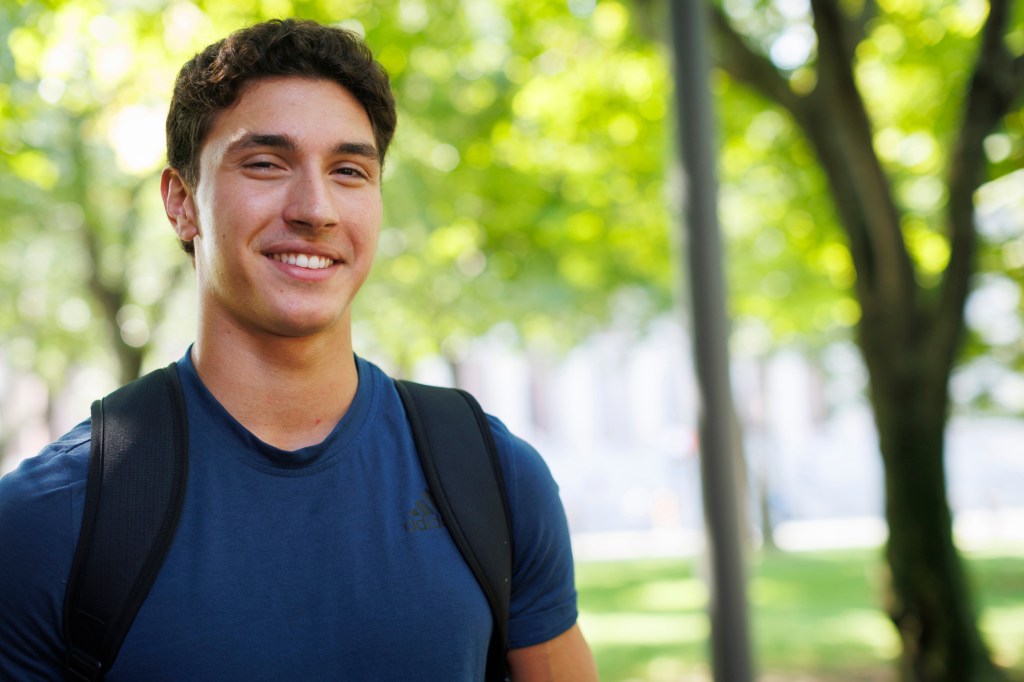
Trevor Sardis.
Stephanie Mitchell/Harvard Staff Photographer
Coming in, I was looking to do a major where I made the most money. I talked to a lacrosse teammate, and he told me I should focus on what I’m interested in. I should enjoy my time here as much as I can. The major doesn’t matter. You could go find a job where you’ll make money, and with a major that you’re interested in, you can find a job that you’re interested in as well. That was probably the best piece of advice I’ve gotten here. That made me change the way I look at how I’ll do school over the next few years.
— As told to Danny Laughary ’25, Harvard Correspondent
[ad_2]
Source link

